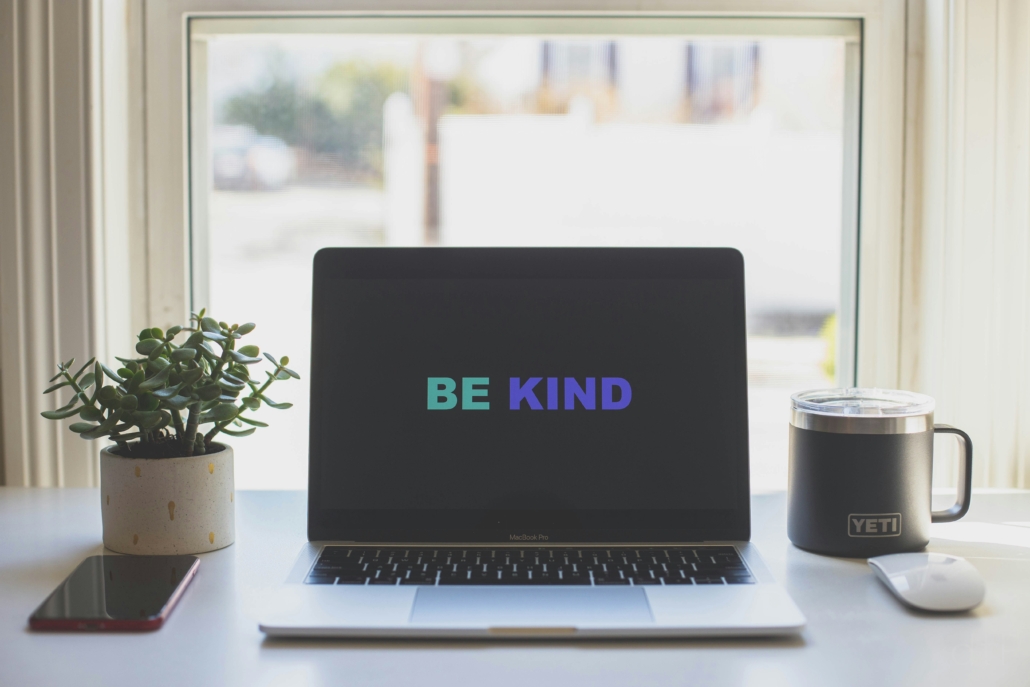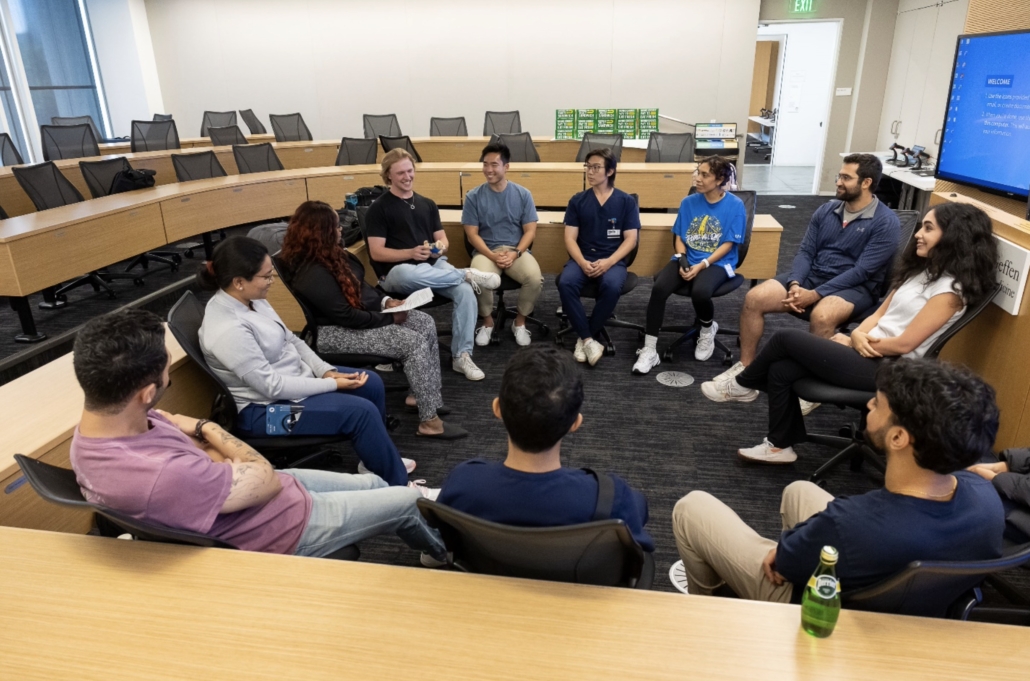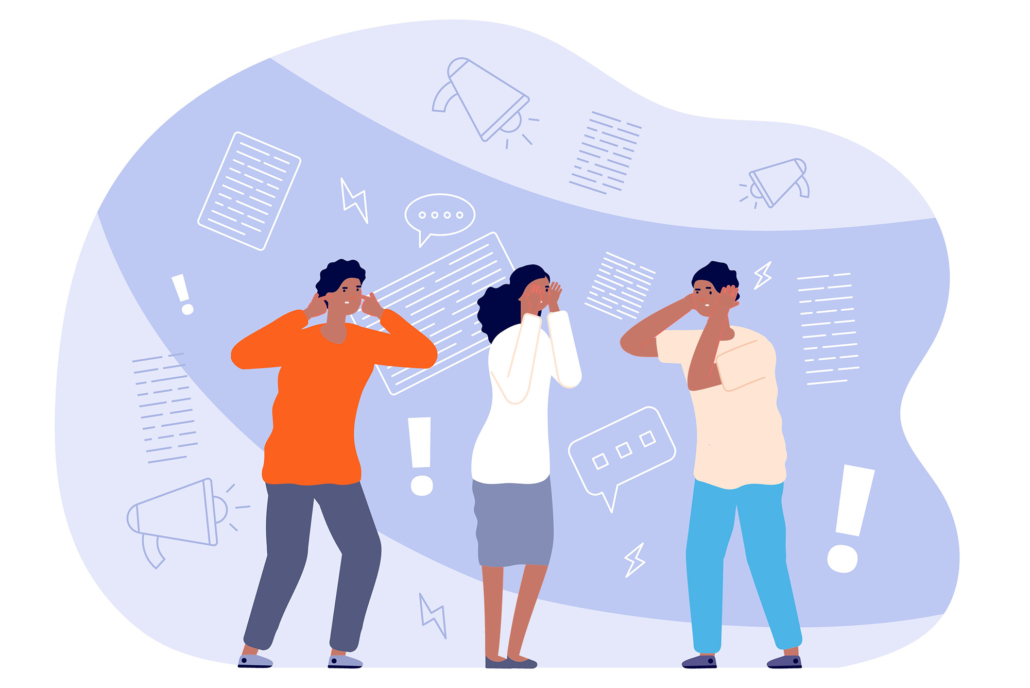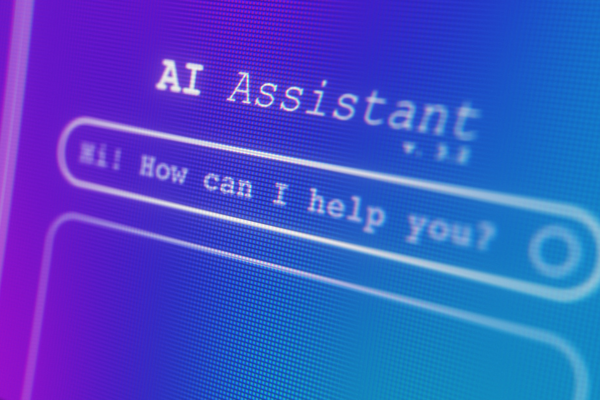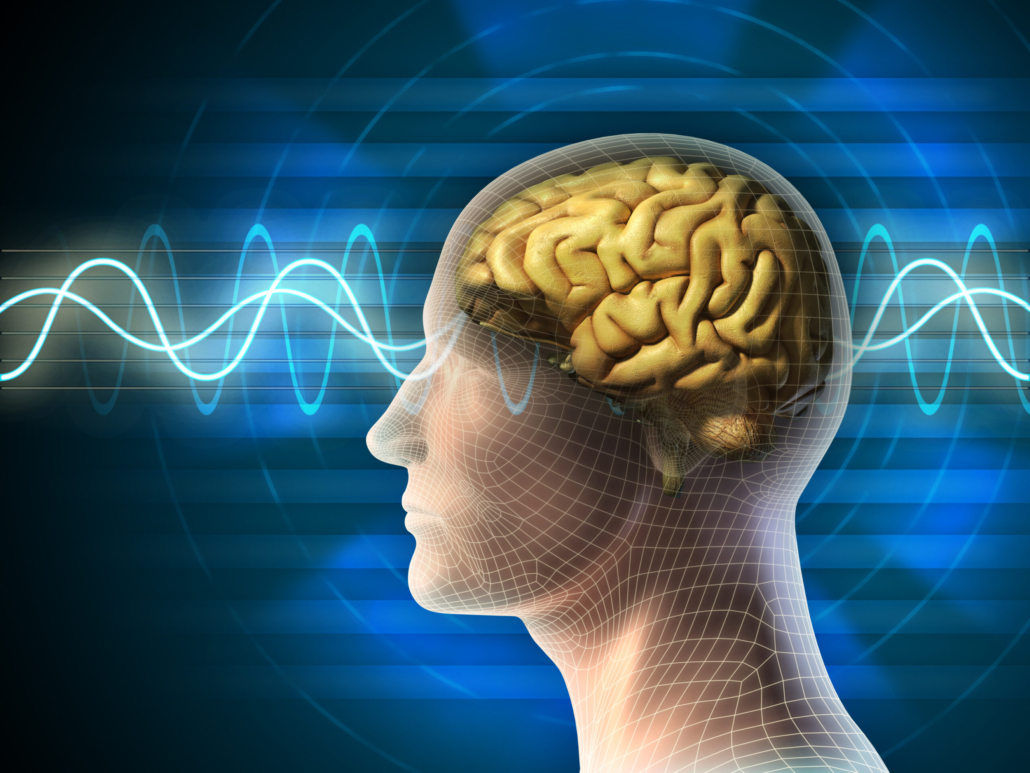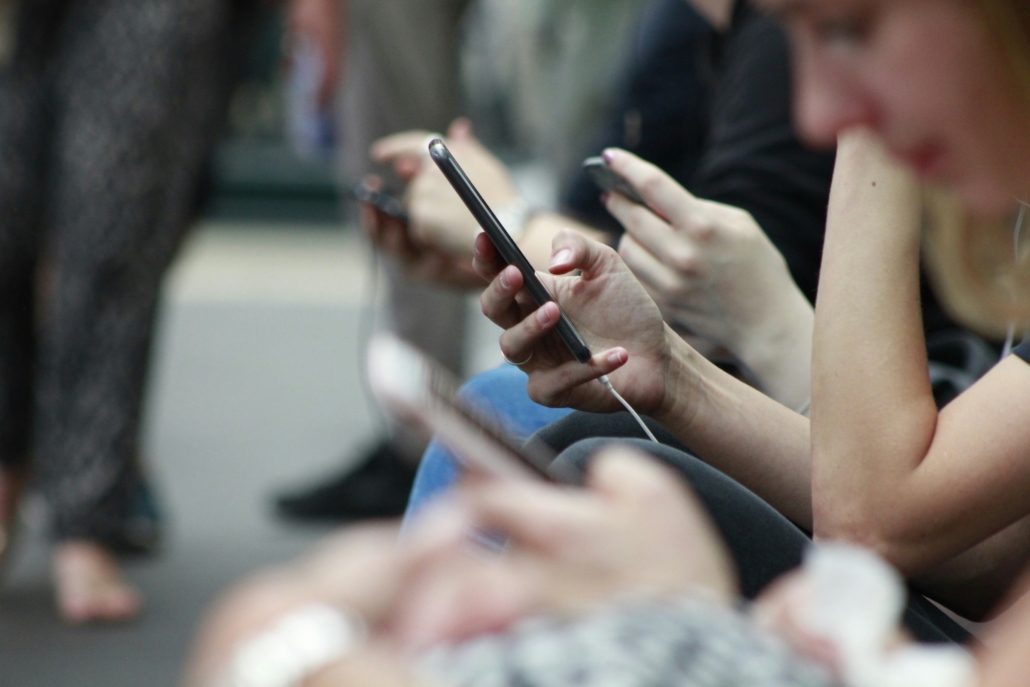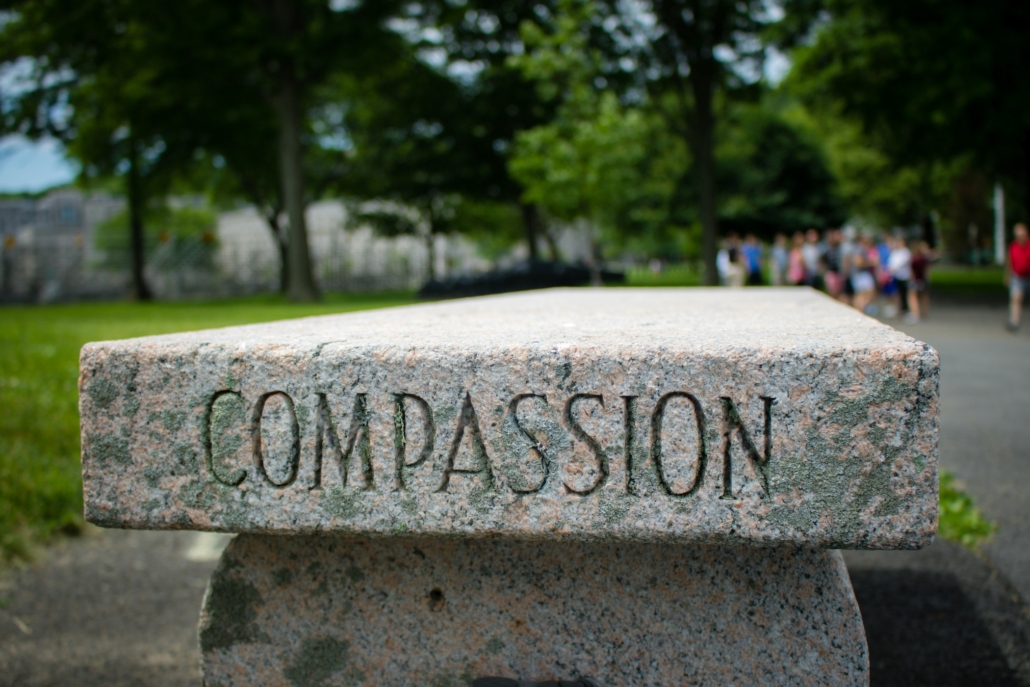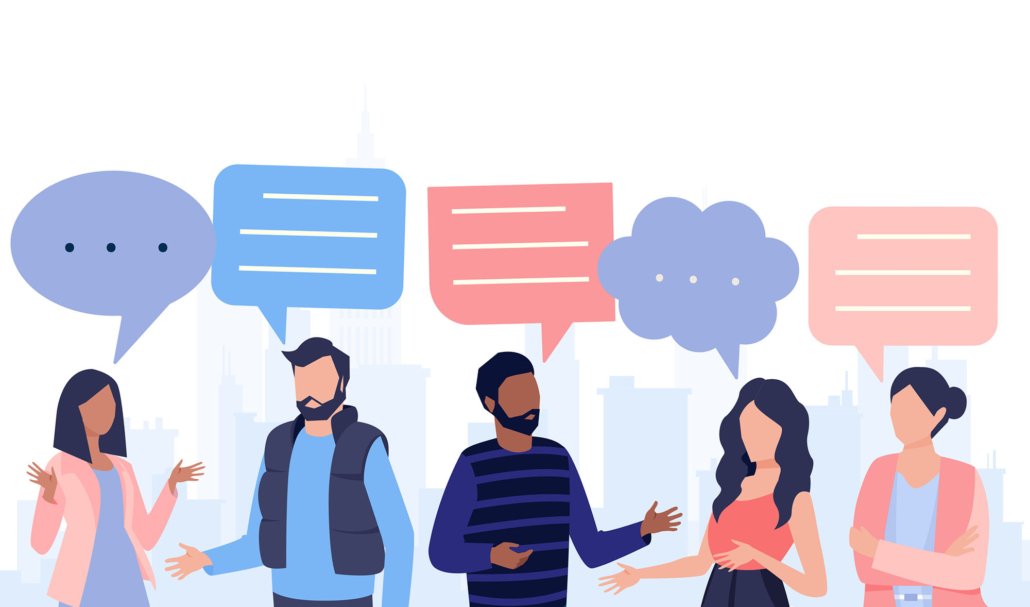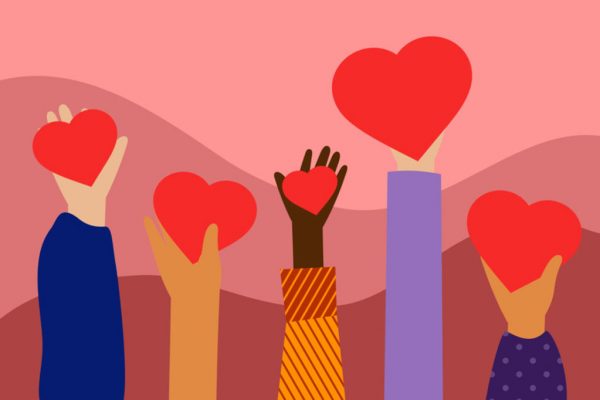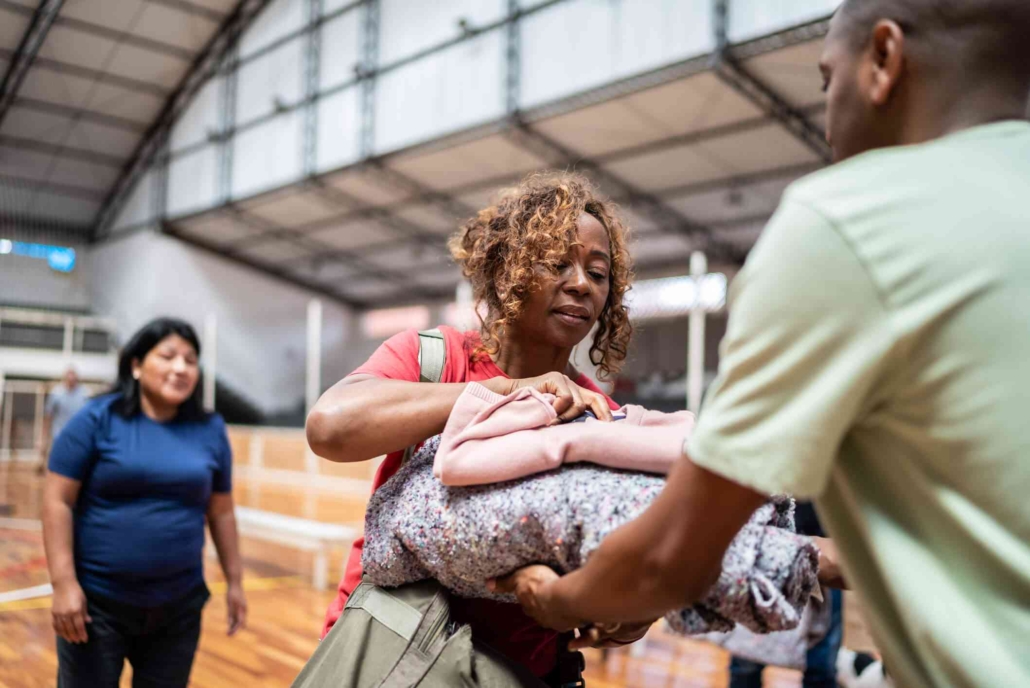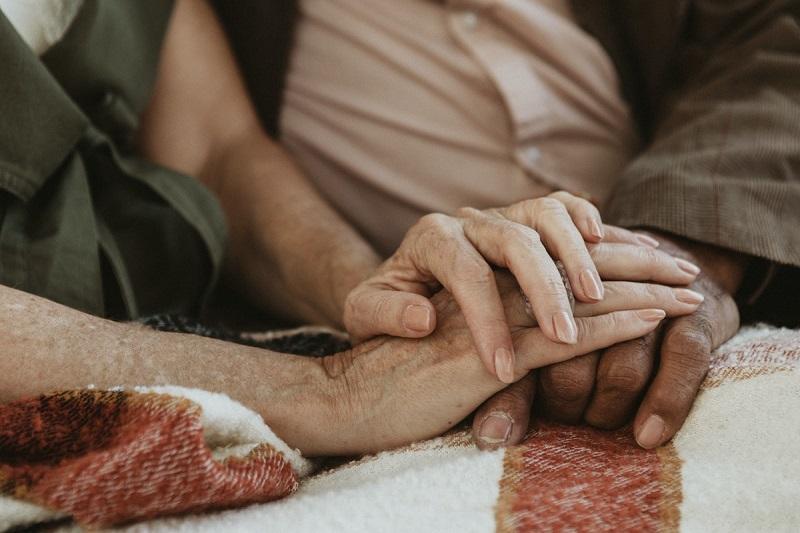Research Projects
The following 14 teams, representing 9 academic disciplines, have received grants from BKI to pursue their own kindness-related research throughout the 2025-26 academic year. These researchers will also meet in monthly seminars to build an interdisciplinary community at UCLA dedicated to understanding and promoting kindness.
Kindness Across the Lifespan: How Life Stage and Kinship Influence Moral Decision-Making
Project Description:
This project explores how age, sex, and parenthood shape moral decision-making in situations that require choosing between helping kin, supporting the broader community, or protecting one’s reputation.
Team: David Aguilar, H. Clark Barrett
Restorative Practices in Academic Medicine
Project Description:
Our project advances the scholarly study of kindness by demonstrating its tangible effects on institutional culture through Restorative Practices in Academic Medicine (RPAM).
Team: Eraka Bath, Olivia Diaz, Monique Trinh, Deborah Lehman, Xavier Cagigas
Using Misinformation Corrections to Promote Kind Discourse on Polarizing Topics
Project Description:
This project seeks to understand the downstream effects of misinformation correction activities on affective polarization and willingness to engage in civil dialogue on divisive topics.
Team: Rachel Berwald, Blair Graeme
Kindness and Compassion in Conflict: Exploring Nurses’ Perspectives and Approaches
Project Description:
In this mixed-methods study, we will explore how nurses operationalize compassion and kindness, towards themselves and others, in challenging dynamics of conflict, hostility, and violence.
Team: Kirsten Buen, MarySue V. Heilemann, Melissa Powell
AI-Mediated Communication: Testing the Limits of Algorithmic Kindness
Project Description:
This project empirically tests whether AI-mediated kindness promotes positive interpersonal evaluations or backfires due to algorithmic aversion bias and concerns surrounding authentic intent.
Team: Merabi Chkhenkeli, Daniel Posner
Can Practicing Conversations with AI-iHELP Virtual Patient Simulations Increase Empathy and Compassionate Communication Skills?
Project Description:
The goal of this project is to develop and test an Artificial Intelligence (AI)-driven communication skills training module, the AI-based interactive Humanism E-Learning Program (AI-iHELP), where healthcare professionals and trainees can interact with virtual simulated patients (VSPs) to rehearse empathic and compassionate communication skills.
Team: Yue-Ming Huang, Andrew Shaner, Rachel Dajani, Daniel Fessler, Ashley Ingram-T’Siobbel, Ken Lay, Lillian Gelberg, Jennifer B. Plotkin, Sae Takada, Dan Weisman, Shimona Gupta
Balancing personal distress and compassion to motivate prosocial behavior: A neurobiological mechanism
Project Description:
While empathy can, and oftentimes does, motivate the shift towards kindness, “too much” of it can instead lead to personal distress and shift toward focusing on oneself.
Team: Russell Noble, Naomi Eisenberger
Finding an Audience for Kindness
Project Description:
This project consequently uses news consumption data from social media to examine the possibility that there is an ‘audience’ for kindness.
Team: Stuart Soroka
Cultivating compassion for distant others: the role of attention and empathy in prosocial learning from the effects of past decisions
Project Description:
Our project examines how learning from experience can enhance people’s moral concern for distant others, thereby promoting kindness, compassion, and altruism.
Team: Glen Spiteri, Falk Lieder
Transcending Differences through Conversation
Project Description:
Our team’s goal is to identify communicative strategies that promote successful interactions and foster connection across social divides, be they demographic or attitudinal.
Team: Tanya Stivers, Amanda Morris, Giovanni Rossi
Enhancing Kindness: The Impact of Shared Reality Expectations on Social Interactions
Project Description:
This research investigates when expectations of shared perspectives form and how those expectations shape perception and behavior.
Team: Steven Stroessner, Sydney Tran
The Language of Generosity: How Policy Framing Impacts Altruistic Behavior
Project Description:
This research project seeks to identify one contributing factor: the way in which recent policy changes are framed. Prior research has established that individuals are more motivated to donate to causes they care about under conditions of “policy threat” – i.e. when they believe their policy preferences are under future threat – and less motivated otherwise.
Team: Connor Warshauer, Josh Goetz, Salma Mousa
Love and the Self
Project Description:
This project is about psychoanalytic accounts of love and the self, or, more specifically, psychoanalytic accounts of the self in love.
Team: Jurgen Lipps
The Effects of Prosocial Behavior on Mental Health
Project Description:
Our research aims to extend those findings by examining the psychological factors that drive its mental health benefits and comparing them to self-directed acts of kindness. In a second study, we will test the effectiveness of a mindset intervention designed to increase engagement in prosocial behavior and its subsequent positive effects.
Team: Naomi Eisenberger, Ph.D., Maria Naclerio
Affiliated Graduate Students Fellows
The following four graduate students will pursue their own kindness-related research throughout the 2025-26 academic year. They too will participate in BKI monthly seminars.
Ethics of Care and Radical Empathy in Archiving Incarceration Experiences
Project Description:
This project examines the ethics of archiving first-hand experiences of incarceration, with particular attention to how care practices are embedded in this work.
Team: Anna Robinson-Sweet
Putting “Rational Compassion” into Practice: An Ethnography of Effective Altruism
Project Description:
This doctoral dissertation research will investigate how rationality and compassion are co-constructed in the Effective Altruism movement, a social movement that aims to transform philanthropy through the conversion of individual donors to its principles and practices.
Team: Sarah Paust
Uncovering Pathways to Kindness: A Critical Realist Analysis of How U.S. University Students Engage in the Common Good
Project Description:
This study addresses this gap by employing a critical realist approach to examine how U.S. university students actively involved in social impact organizations manifest their commitment to the common good.
Team: Subeen Jang
F.I.E.R.C.E – Fostering Internal and External Respect, Compassion, and Equanimity: A Mindfulness-Based Intervention to Cultivate Loving-Kindness, Compassion, Joy, and Equanimity in Healthcare Professionals
Project Description:
The study will evaluate the feasibility and efficacy of a mindfulness-based intervention inspired by the Buddhist Four Immeasurables practice on reducing depression (primary outcome), burnout, perceived stress, and biological markers of inflammation, and enhancing psychological well-being, mindfulness, and sleep quality (secondary outcomes) in 100 healthcare workers.
Team: Tyrus Korecki

